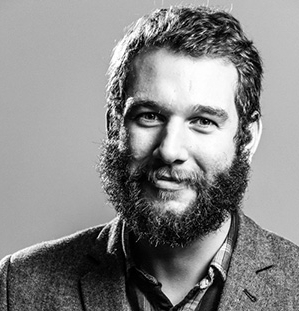
Pope Francis created quite a stir when he issued his new encyclical Laudato si'. Millions of people read about it - although, at 184 pages - very few actually read it. But that's a minor offense, a venial sin, because three week's fanfare has done little to cement the encyclical as a classic.
By some measures Laudato si' (or, On Care For Our Common Home) is an instant success. Papal encyclicals usually appear closer to the back pages than the front. But when Pope Francis published his open letter it was received with open arms. Dignitaries like Ban Ki-moon and the Dalai Lama hailed its environmental message and moral heft. International groups and the mainstream media fawned over its progressive point of view and concern for the poor. But Laudato si' is only a classic by Mark Twain's measure of the term: a book that people praise rather than read.
By another measure - this time George Orwell's - a classic is a work that's often read, widely admired, and long remembered. Judged by this standard we're not looking at a Penguin Classic. Not yet. But this isn't the pope's fault. Neither is it the work's length, although a manifesto would've been better than a monograph. Nor is it the encyclical's antique format or its esoteric talk of social ecology and tyrannical anthropocentrism. What stands between Laudato si' and classic-status is not its readability, but its usefulness. The fault is not with the author (per se), but with the audience.
Laudato si' is officially addressed to people of good will. Unofficially, it's talking to countries like America and China. To the people and systems that supposedly stimulate global consumption, generate wealth disparity, and spread environmental degradation. He charges their free-market capitalism with bequeathing "to coming generations debris, desolation and filth." But the pope's peroration won't produce much penitence.
Free marketers genuinely believe the economic highway leads to the moral high road. They will resist the pope's message, not because "they have ears but do not hear," but because they have eyes that can see contrary evidence. They see how the environmental health of a country correlates to per capita income, and the higher the better. They've witnessed how the spread of capitalism in the last four decades has lead to an unprecedented contraction in global poverty. And they've envisaged the most effective commercial solutions for climate change like cap and trade.
The pope's encyclical is also stymied by political factors. In the United States he is highly popular but lacks political muscle. The democratic left might like Francis but they were already sold on the environmental agenda, and the republican right is respectful but wary and ideologically opposed. Help could come from Jeb Bush, a devout Catholic and the frontrunner in the forthcoming Republican primaries, but he's nipped Francis in the bud. When Bush was asked about the pope's encyclical, he demurred: "I don't get... policy from my bishops or my cardinals or my pope."
The Chinese government, by contrast, does not get anything from the pope. There have been no official relations between the People's Republic of China and the Holy See since 1951. Unofficial relations between Beijing and the Vatican are even icier, thanks to a diplomatic feud over the disputed right to appoint Chinese bishops. So the likelihood of the pope's encyclical receiving much press - let alone support - from the state-run media or the politburo is highly unlikely.
Laudato si' won't be able to persuade the powers that be. But Francis probably expected that America and China would be out - or more aptly - that they would never be in. Instead, the pope hopes to inspire the powers that aren't - or perhaps never will be. "What is needed," wrote Francis, "is a politics which is far-sighted and capable of a new, integral and interdisciplinary approach to handling the different aspects of the crisis." But to get a political solution of this magnitude - from the political ineptitude of today's politics - requires more than a papal exhortation.
Perhaps Francis should invoke papal infallibility. After all, he'll need to use everything in his arsenal to secure a political solution for climate change and wealth redistribution - if it's even possible, or desirable. But judging by the insoluble nature of today's 'political solutions' the outlook seems grim. We're stuck in a world where great powers are caught between rocks and each other in the South China Sea. Today the fate of Europe hangs in the account balance of the Greco-German financial dispute. The present climate hardly seems well suited for the pope's 45,000-word tome on climate change. Still, Laudato si' could defy these odds and become a classic. But Pope Francis will need to pray, "Kýrie eléison." Lord, have mercy.







